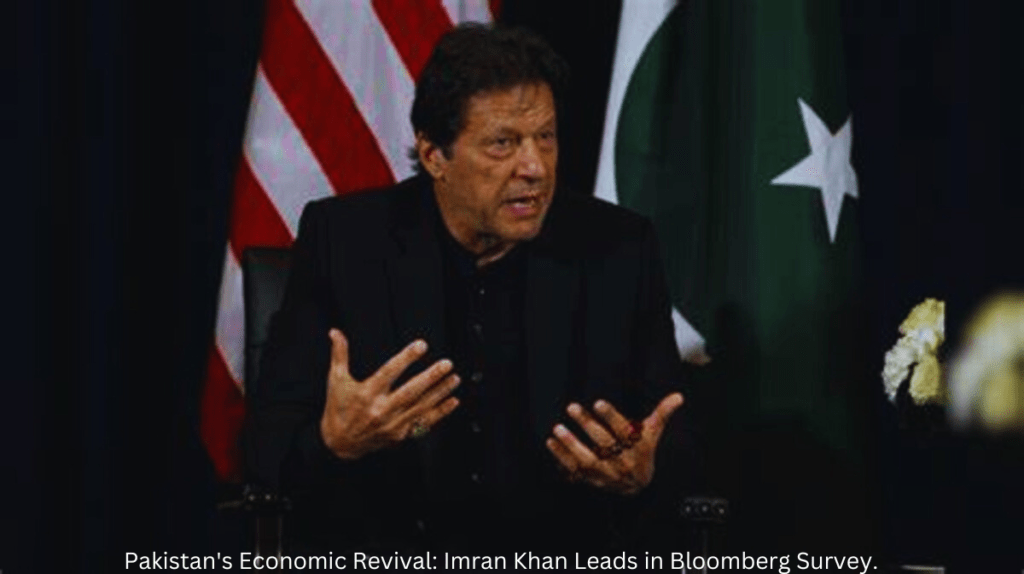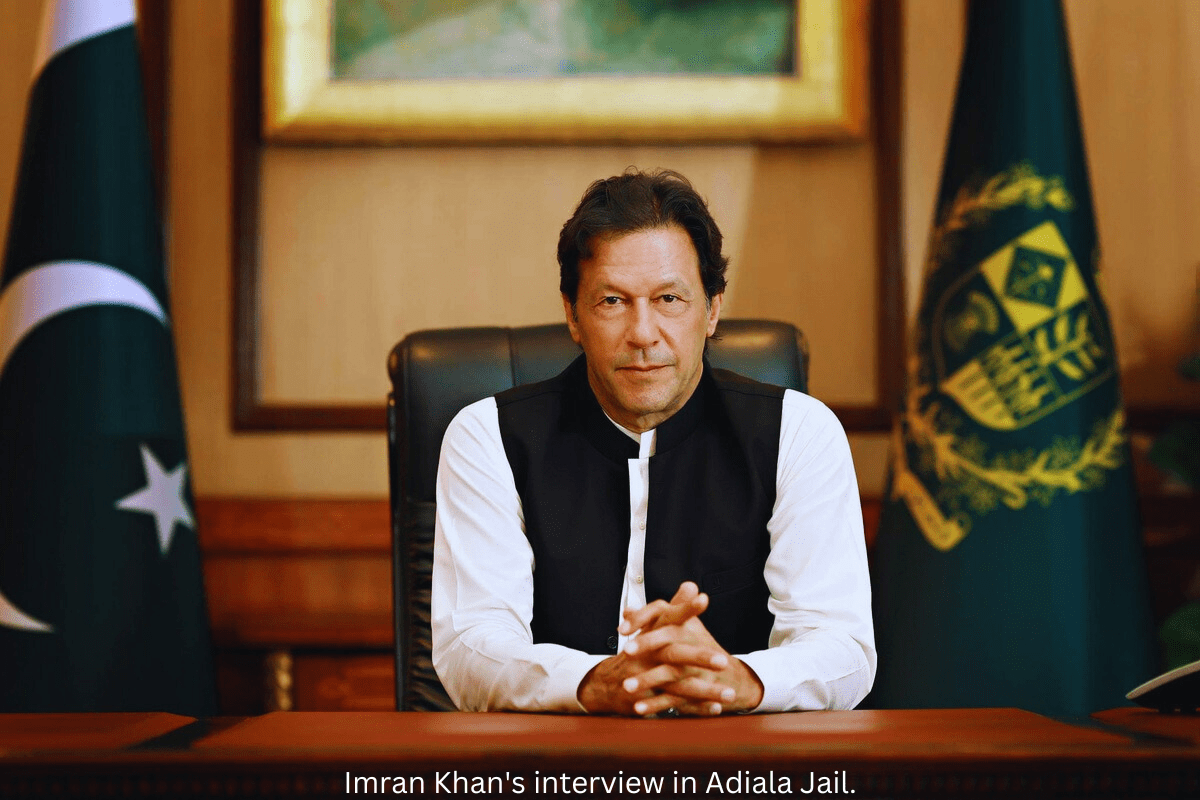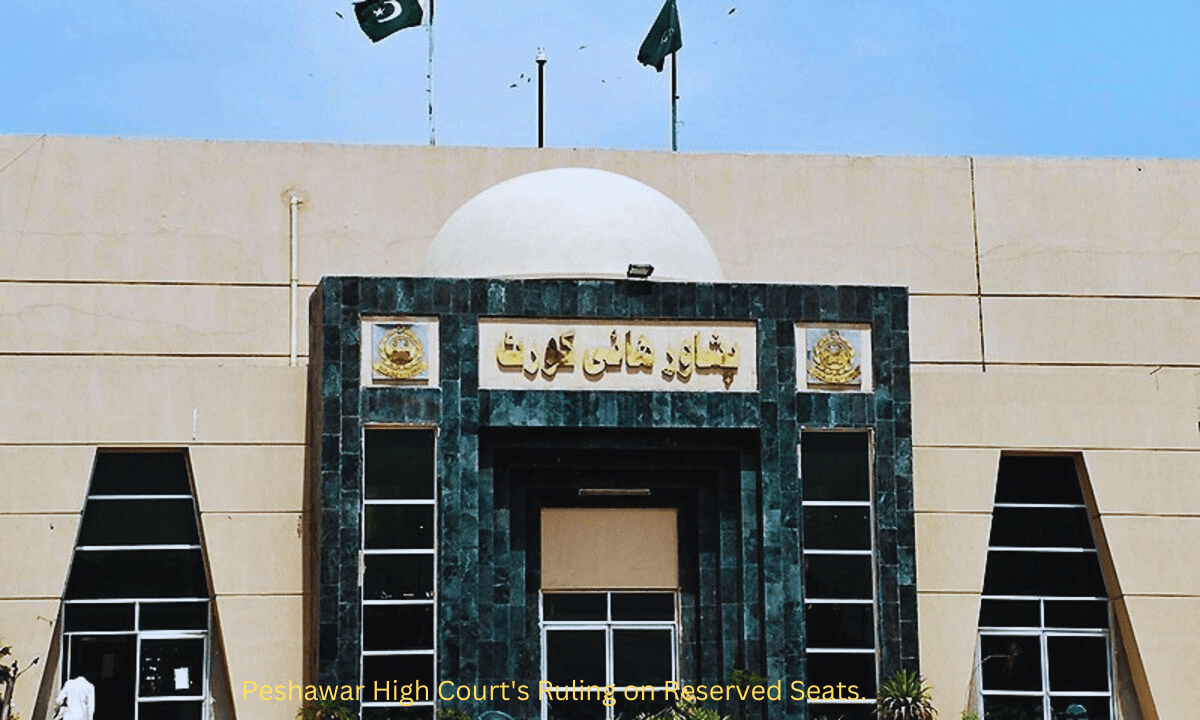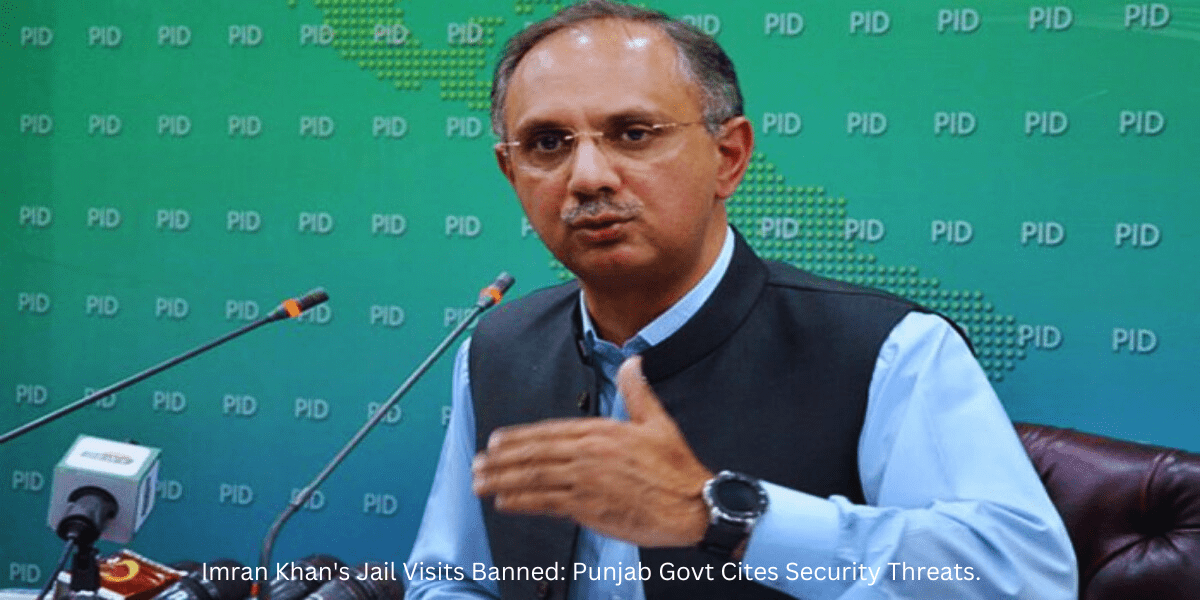
Imran Khan emerges as the preferred leader in Bloomberg’s survey, signaling a potential shift in Pakistan’s economic trajectory. Despite legal challenges and political volatility, his enduring popularity among finance professionals underscores optimism for the country’s recovery. However, the landscape remains complex, with rivals like Nawaz Sharif demonstrating past economic prowess. As Pakistan gears up for elections, the chosen leader faces the daunting task of addressing low reserves, high inflation, and fostering stability. The outcome holds significant implications for the nation’s future prosperity.
Pakistan’s Economic Revival and Imran Khan’s Role
In a recent Bloomberg survey, Pakistani finance professionals have expressed a strong preference for Imran Khan to lead the country’s economic revival. Despite being disqualified from holding public office due to convictions, Khan, the founder of Pakistan Tehreek-e-Insaf (PTI), has emerged as the top pick among respondents.
Imran Khan: Leading the Charge for Economic Recovery
Khan’s enduring popularity and perceived ability to undertake necessary reforms have positioned him as the favored leader among Pakistani finance professionals. Despite legal setbacks, such as disqualification and recent convictions, Khan’s appeal remains strong, with respondents citing his potential to stabilize the economy in the long term.
Political Landscape: Nawaz Sharif and Bilawal Bhutto-Zardari
While Khan leads in the Bloomberg survey, Nawaz Sharif, a three-time former premier of Pakistan, follows closely behind. Sharif’s experience in government is noted by respondents, reflecting a recognition of his past contributions to economic management.
In contrast, Bilawal Bhutto-Zardari, representing the influential Bhutto family, trails as a distant third. Some respondents express distrust of dynastic politics, which could impact Bhutto-Zardari’s prospects in leading the country’s economic recovery.
Challenges Ahead: Low Reserves and High Inflation
The chosen leader, whether Khan, Sharif, or another candidate, will inherit an economy grappling with significant challenges. These include low reserves and stubbornly high inflation, which have persisted despite efforts to address them.
Political Volatility and Elections
Pakistan has experienced political volatility since Khan’s ouster in April 2022. Disillusionment with the electoral system is evident, particularly as Khan remains disqualified from running in elections. As the nation gears up for elections, the chosen leader will face the task of restoring stability and confidence in the political and economic spheres.
Imran Khan’s prominence in the Bloomberg survey highlights the hopes pinned on his leadership for Pakistan’s economic revival. However, challenges loom large, with the need to address low reserves, high inflation, and political instability. The outcome of the elections will shape the country’s trajectory, underscoring the significance of effective leadership in navigating Pakistan’s economic future.
Frequently Asked Questions (FAQ’s)
Q: Why is Imran Khan favored despite being disqualified from holding public office?
A: Imran Khan’s enduring popularity and perceived ability to undertake necessary reforms have positioned him as the favored leader among Pakistani finance professionals. Despite his disqualification, he is seen as a potential catalyst for long-term economic stability.
Q: How does Nawaz Sharif’s experience factor into the survey results?
A: Nawaz Sharif, a three-time former premier of Pakistan, closely follows Imran Khan in the Bloomberg survey. His experience in government is noted by respondents, reflecting a recognition of his past contributions to economic management.
Q: What role does dynastic politics play in the survey findings?
A: The survey indicates a distant third position for Bilawal Bhutto-Zardari, with some respondents expressing distrust of dynastic politics. This suggests that the perception of political lineage could impact leadership preferences in Pakistan’s economic recovery.
Q: What are the key challenges facing Pakistan’s economy?
Pakistan’s economy grapples with challenges such as low reserves and stubbornly high inflation. These issues persist despite efforts to address them and present significant hurdles for the chosen leader in fostering economic stability.
Q: How has political volatility impacted Pakistan’s economic landscape?
A: Political volatility, particularly since Imran Khan’s ouster in April 2022, has contributed to disillusionment with the electoral system. This volatility poses challenges for economic stability and underscores the importance of effective leadership.




Leave a Reply